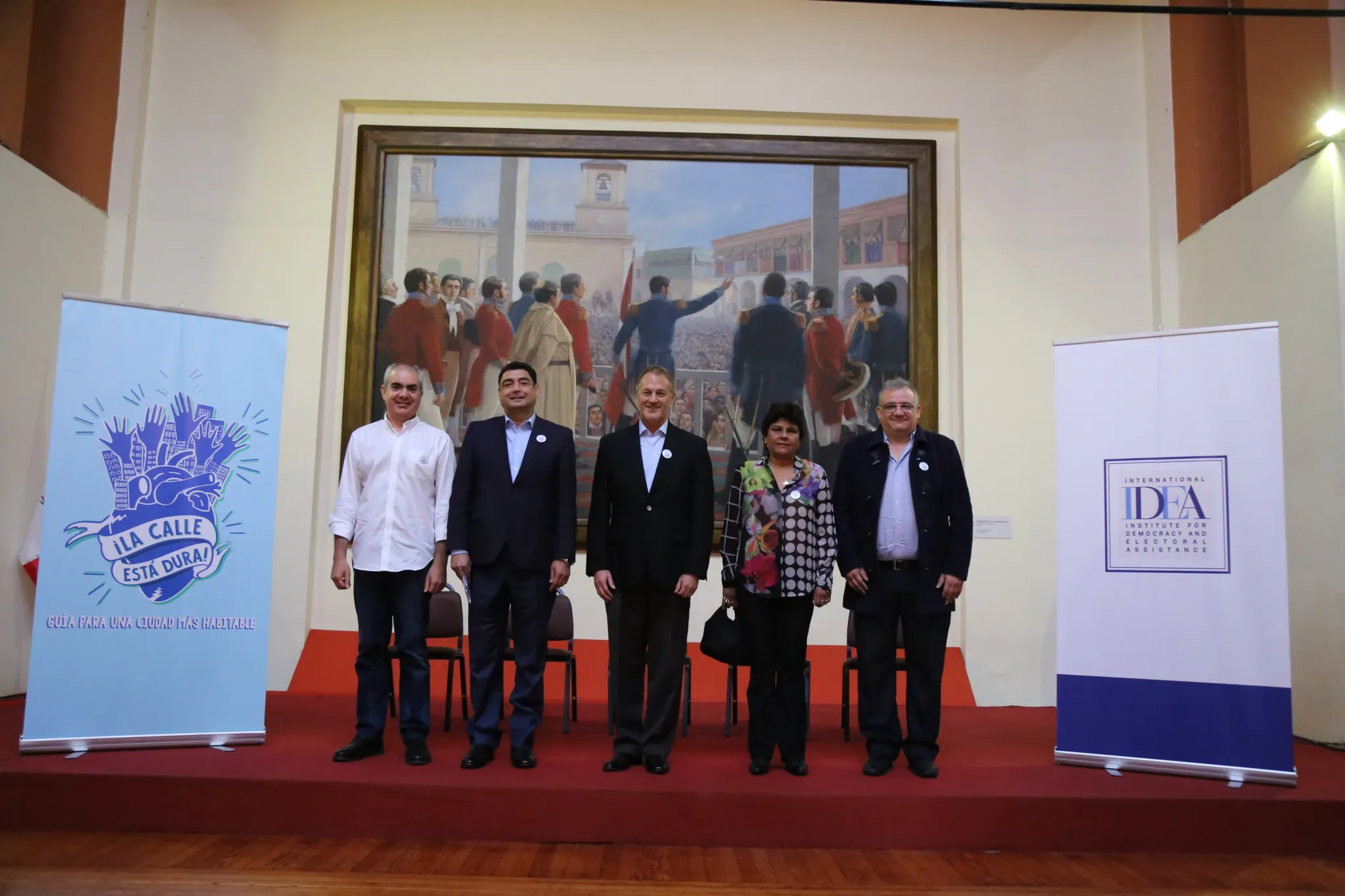
A strategic partnership between International IDEA, the civil association Presente and the PUCP (Catholic University of Peru) Governance School has developed a dialogue with civil society organizations representing traditionally excluded groups.
This process began by inviting five allies: SODIS, representing persons with a disability; NO TENGO MIEDO, representing the LGBTIQ community; ASHANTI, representing the Afro population; CAAAP, representing indigenous people; and COMADRES as facilitators for involving women leaders and scholars.
In turn, these organizations invited several related groups to generate a space for dialogue and consensus-building. The goal was to identify and prioritize common agendas for Lima. Approximately 50 groups participated in this process, which culminated in the development of the "Guide for a Livable City: Streets are Tough". This document includes figures and information about health, education, safety, access, labor and other topics.
The “Guide for a Livable City” was presented to the candidates for mayor of the city of Lima in a public event. The candidates signed the “Pueblo Libre Act”, in which they committed to revise their government plans and include the proposals prepared by citizen groups comprised in the guide. Expectations are that the person elected will implement public policies to transform Lima into a better city for historically vulnerable people. Various candidates have made public statements on their intention to honor these commitments.
The issues discussed in the report are related to discrimination, harassment, deficient access to public services and citizen insecurity. One fundamental aspect mentioned is the limited training of public office personnel to deal with different situations deeply affecting these vulnerable groups.
The groups that participated in this process are getting organized to monitor the candidates and the eventual elected authorities.
Find out more about the launch of the guide and the "Pueblo Libre Act".




